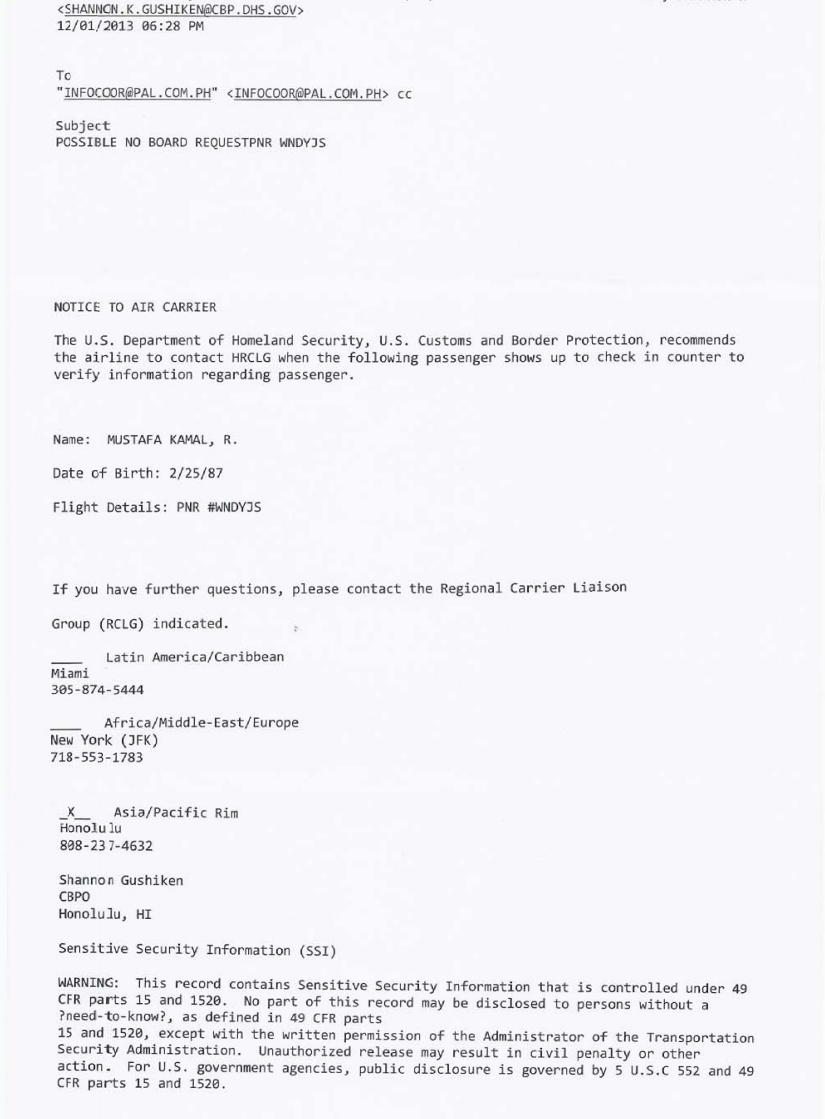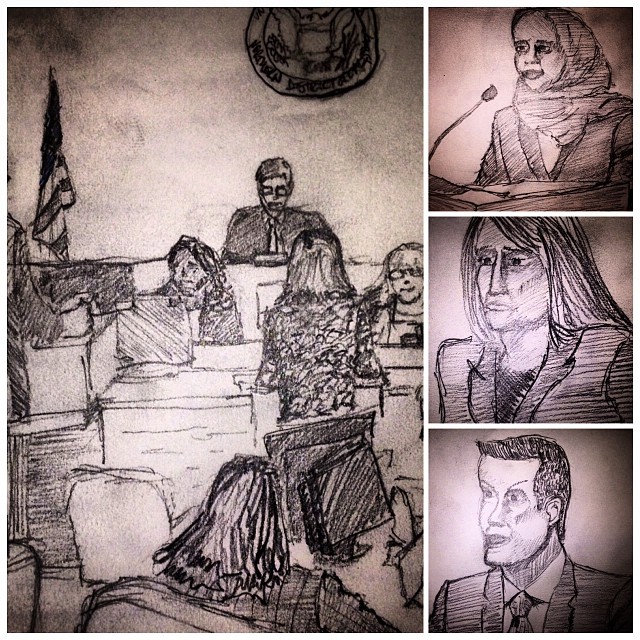Trial judge finds for plaintiff Dr. Ibrahim in no-fly case
Following a week-long trial in Federal court in San Francisco last month, Judge William Alsup found today that Dr. Rahinah Ibrahim’s due process rights were violated when she was placed on the “no-fly” list. “Judgment is HEREBY ENTERED in favor of plaintiff to the extent stated in the findings of fact, conclusions of law, and order for relief.”
Only a summary of Judge Alsup’s ruling has been made public. The government wanted the entirety of the verdict (against the government) to be kept secret: “In the Court’s view, all of the separate order should be made public, but it will remain under seal and the parties (and counsel) shall maintain its secrecy until APRIL 15, 2014, so that our court of appeals can rule on the government’s desire to maintain its secrecy.”
Judge Alsup ordered the government to correct Dr. Ibrahim’s status on the no-fly list (and certify under oath that it has done so), and disclose to Dr. Ibrahim whether she is or is not now on the list:
This much, however, can be and will be revealed publicly now by way of summary. All of the government’s standing arguments are overruled…. Our court of appeals … held that plaintiff, even though an alien living overseas, did have standing. The government did not seek higher review of this ruling.
Turning to the merits, some but not all of the relief sought by plaintiff has been granted. In order for the district court to grant relief on a claim that a plaintiff has been wrongly listed in a government terrorist watchlist, that listing must first result in concrete, reviewable adverse government action against the plaintiff, such as refusal of permission to board a plane. This means that a judicial remedy must, by necessity, be a post-deprivation remedy. Once a plaintiff shows concrete, reviewable adverse government action has occurred, and, as here, shows that the action resulted from an error by the government, then the plaintiff is entitled by due process to a post-deprivation remedy that requires the government to cleanse and/or correct its lists and records of the mistaken information and to certify under oath that such correction(s) have been made. The government’s administrative remedies fall short of such relief and do not supply sufficient due process. In light of the confusion caused by the government’s mistake, such cleansing-certification relief is ordered in this case. Also, the government is ordered to disclose to plaintiff her current status on (or off) the no-fly list (without prejudice to future adjustments based on new information). In this connection, the government concedes that plaintiff is not a threat to our national security.
Although a district court cannot review the decision of a consular officer in denying a visa to a nonimmigrant alien, when a nonimmigrant alien with standing to assert constitutional rights has been denied a visa under Section 212(a)(3)(B) of the Immigration and Nationality Act, 8 U.S.C. 1182(a)(3)(B), the consular officer must specify which of the nine subsections was the basis of the denial. Din v. Kerry, 718 F.3d 856, 862 (9th Cir. 2013). This relief is ordered here.
If, moreover, a consular officer advises a nonimmigrant alien that she is not eligible to seek a discretionary waiver of inadmissibility when, under the law, she is eligible to at least apply for a waiver, that erroneous advisement may be reviewed by a district court to the limited extent of requiring the government to inform the nonimmigrant alien that she is eligible to at least apply for a discretionary waiver. Such relief is ordered here. The subsequent grant or denial of any such application, however, would not be reviewable….
IT IS SO ORDERED.
Dated: January 14, 2014.
WILLIAM ALSUP
UNITED STATES DISTRICT JUDGE
“Justice has finally been done for an innocent woman who was wrongly ensnared in the government’s flawed watch listing system,” said Elizabeth Pipkin, lead trial counsel for Dr. Ibrahim along with Christine Peek, Ruby Kazi, and Jennifer Murakami.
We fear that today’s ruling is, unfortunately, unlikely to be “final” in light of inevitable appeals by the government. But as the first substantive ruling on the government’s system of secret administrative “no-fly” orders, it is a major step toward bringing the DHS and its control of travel within the rule of law.

